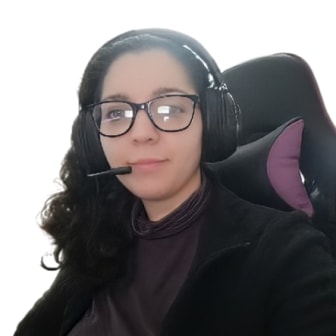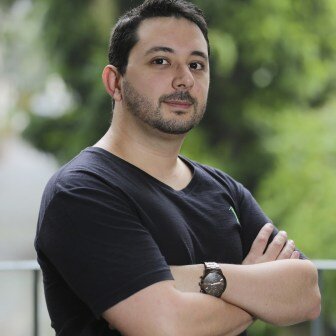Hire Remote C developers effecitvely in 2025
C is one of the most powerful and efficient programming languages that has been around for several decades. It’s mainly used to develop operating systems, system software, embedded systems, and applications that require high-performance and low-level hardware access. It is widely used in industries such as finance, aerospace, and telecommunications.
C has a standard library that provides many useful functions for performing common tasks, such as input/output operations and mathematical calculations. This makes it easier for software developers to write efficient and reliable code without writing all the necessary functions from scratch. It has influenced the development of many other programming languages, including C++, Java, and Python, and is still widely used today.
Here, we will explore the fundamental skills to look for when you're planning to hire C developers, provide a list of the top interview questions, and address common concerns related to the hiring process.
What to look for when hiring C developers?
Technical skills
- C Programming: C programmers should have a strong foundation in C programming and proficiency in data types, memory management, and pointer manipulation.
- Understanding of operating systems: C developers should be familiar with various operating systems and their APIs, including Linux, Windows, and Unix.
- Debugging and testing: They must have strong debugging and testing skills and be familiar with various tools such as GDB and Valgrind.
- Familiarity with development tools: They must have knowledge and experience working with various development tools such as IDEs, compilers, and build systems.
- Software Engineering Principles: Familiarity with data structures and software engineering principles are also necessary to write high-quality code.
Attention to detail
C programming requires high precision and attention to detail. The developer must demonstrate this ability in their code samples or previous work and be meticulous and thorough. As C programming is critical, even small mistakes can have significant consequences, including bugs, crashes, and security vulnerabilities.
Algorithms & data structures
C is a low-level programming language that provides direct access to hardware and requires developers to implement algorithms and data structures themselves. Having a good understanding of algorithms and data structures enables C developers to write code that can handle large amounts of data efficiently, process it quickly, and use memory effectively. It also helps them to optimize code for performance and maintainability, which is important for many companies developing high-quality software.
Familiarity with hardware interfaces and drivers
C is a popular choice for developing software systems, embedded systems, and other applications that necessitate direct interaction with hardware. Understanding hardware interfaces and drivers is crucial for communicating with hardware components and peripherals, such as sensors, displays, and input devices. This knowledge can help programmers in developing software for a wide range of applications, from embedded systems and device drivers to real-time systems and industrial control systems.
Communication & teamwork
Communication and teamwork are essential skills for C developers because they help in explaining code, troubleshooting issues, providing updates on progress, and receiving feedback from team members. Good communication skills also prevent misunderstandings and errors, ensuring that the project stays on track.
Effective communication and teamwork lead to better project and business outcomes, increased productivity, and higher-quality code. Additionally, good communication and teamwork create a positive work environment that fosters innovation and creativity, leading to higher job satisfaction and team morale.
Top 5 C Developer Interview Questions
Can you tell me about a particularly challenging project you worked on and how you overcame any obstacles?
This question tests the candidate's problem-solving skills and ability to work through challenges. The interviewer can assess if the candidate has the ability to work on a difficult project and how they deal with obstacles.
The candidate's answer should conclude how they were ultimately able to deliver the project on time and how the experience taught them the importance of effective communication, collaboration, and adaptability when working on complex projects. The ideal answer would also highlight any specific achievements, such as reducing the system's response time or improving its reliability, and how these achievements contributed to the project's overall success.
How do you keep up with the latest technologies and industry trends?
This question assesses the candidate's interest and commitment to staying up-to-date with the latest developments in their field. The interviewer asks this question to know if the candidate is proactive about seeking new information and learning opportunities.
The candidate should explain the various methods they use to stay up-to-date with the latest technologies and industry trends.
For example, the candidate could mention that they regularly read industry publications and blogs, attend relevant conferences and workshops, and participate in online forums and communities. They could also mention that they actively seek out new learning opportunities, such as taking online courses or joining coding bootcamps.
The ideal answer would also demonstrate the candidate's ability to apply their learning to their work. They could mention specific examples of how they have incorporated new technologies or programming techniques into their projects, or how they have used their knowledge and expertise to help solve specific challenges.
Can you explain how you would approach debugging a problem in a C program?
This question tests the candidate's ability to use debugging tools and techniques to troubleshoot complex issues in C programs. The interviewer is interested in finding out if the candidate can describe their strategy for debugging, including the tools and techniques they use.
An ideal answer would outline a structured approach to troubleshooting issues in C programming. The candidate should explain how they analyze the error message or symptoms of the problem and then isolate the root cause of the issue. They should also mention their proficiency in using debugging tools such as a debugger or printf statements to trace the program's execution and pinpoint where the problem occurs. The answer should also indicate that the candidate is adept at identifying common programming errors like syntax, logic, and memory management issues, which they would check for during their troubleshooting process.
How would you handle a problem with your C program that causes it to crash?
The candidate's capacity for troubleshooting complicated problems in C programs is evaluated by this question: whether the candidate is familiar with typical C code problems and how they could be rectified.
The candidate should demonstrate a strong understanding of the debugging process and the importance of being thorough and methodical when troubleshooting problems in a C program. Their approach to problem-solving should show that they are proactive, resourceful, and committed to delivering high-quality code.
How would you prevent errors in your C program?
This question analyzes the candidate's capacity for writing error-free code. The interviewer is keen to learn about their knowledge of common C programming errors and the techniques they adopt to prevent or correct them.
The candidate should emphasize the importance of careful planning and design before beginning to write code, clearly defining the requirements and scope of the program, and creating a detailed plan for how it will be implemented. The approach must be diligent in ensuring code quality showing that the software developer is committed to delivering high-quality, error-free code that meets the project's requirements.
















